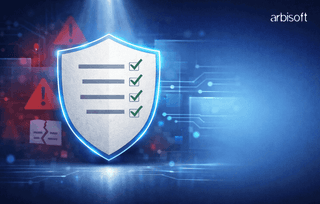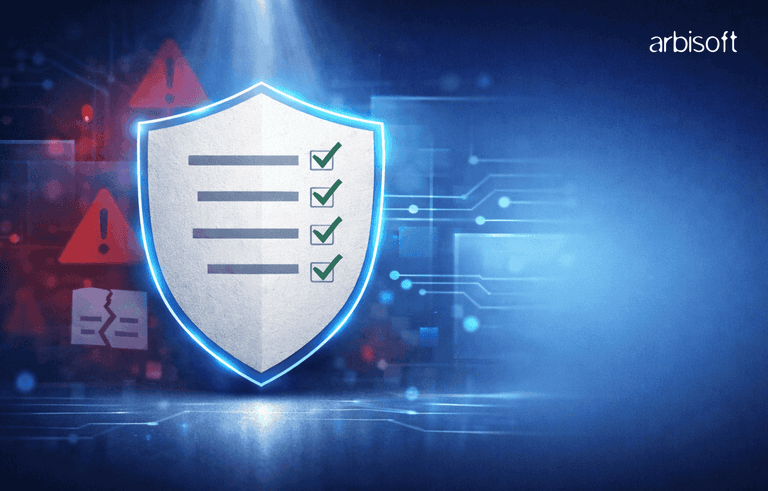We put excellence, value and quality above all - and it shows




A Technology Partnership That Goes Beyond Code

“Arbisoft has been my most trusted technology partner for now over 15 years. Arbisoft has very unique methods of recruiting and training, and the results demonstrate that. They have great teams, great positive attitudes and great communication.”
Accessible Tech Solutions for Mental Health: Bridging the Gap

Ever felt stressed out and wished for instant support right at your fingertips? Or struggled to find the right help when anxiety kicks in? You’re not alone. In fact, nearly 1 in 5 adults in the U.S. faces mental health challenges every year, yet millions go without the support they need. Whether it’s due to cost, long wait times, or stigma, getting the right mental health care can feel impossible. According to the World Health Organization, two-thirds of people with mental health conditions never receive treatment.
But what if technology could change that? Thanks to a wave of digital innovations; like AI chatbots, virtual therapy, and mental health apps; help is now more accessible, affordable, and tailored to your needs. These cutting-edge tools are bridging the gap between mental health struggles and real solutions, offering support wherever and whenever you need it. Let’s explore how these tech advancements are reshaping mental health care for the better.
Get your personalized recommendations for mental health tech tools

Take the quiz now and get personalized recommendations to start your journey toward better mental health today!

1. Assistive Technologies
Assistive technologies are providing critical support for people with disabilities, enabling them to engage with mental health resources more easily. For individuals with cognitive or physical disabilities, these technologies can be life-changing. Tools such as screen readers help those with visual impairments access mental health websites or apps, while speech recognition software like Dragon NaturallySpeaking allows people with mobility issues to interact with therapists or use mental health apps by voice command. Innovations like Be My Eyes, which connects blind individuals with sighted volunteers, allow greater autonomy, making the overall mental health support experience more inclusive.
More advanced assistive tech is now incorporating features like emotion recognition, which can help therapists better understand their clients' emotional states during virtual sessions, improving treatment outcomes for individuals with communication barriers.
2. Teletherapy Platforms
Teletherapy has revolutionized access to mental health services, especially for people in remote or underserved areas. Platforms like BetterHelp and Talkspace provide a range of services including video calls, messaging, and audio sessions with licensed therapists. According to recent surveys, over 80% of teletherapy users reported it to be as effective as in-person therapy. This method removes barriers such as commuting and scheduling conflicts, which often prevent people from seeking help.
Moreover, teletherapy allows individuals to choose therapists who specialize in their specific needs, something that may not always be available locally. Whether someone is dealing with depression, anxiety, or trauma, teletherapy platforms provide easy access to professionals with a range of specialties.
3. Wearables & Monitoring
Wearables like Fitbit, Apple Watch, and Oura Ring are becoming important tools in monitoring mental health. These devices can track key metrics like sleep quality, physical activity, and heart rate variability—factors that are closely linked to stress and anxiety levels. For example, increased heart rate and lack of sleep are common indicators of rising stress levels, which these devices can detect early.
Additionally, some wearables are now integrating features like electrodermal activity (EDA) sensors, which measure changes in skin conductivity that are associated with emotional stress. This real-time data empowers users to take immediate action, such as practicing mindfulness or seeking help, before their stress escalates into a larger issue. Spire Stone, a wearable that monitors breathing patterns, goes a step further by offering guided breathing exercises in response to detected stress, helping users manage their mental health proactively.
4. AI & Chatbots
AI is reshaping mental health care through chatbots and virtual assistants that offer immediate, on-demand support. AI-driven platforms like Woebot and Wysa are providing users with an accessible, affordable alternative to traditional therapy. These chatbots use machine learning to understand emotional cues from the user's text input and respond with tailored advice, coping strategies, or exercises.
What makes AI particularly impactful is its ability to offer 24/7 support—much like how ai chatbot solution for ecommerce enhances online interactions—providing critical assistance to individuals in need, regardless of the hour. While these bots are not a replacement for human therapists, they are invaluable for managing day-to-day mental health challenges. Woebot, for example, has been shown to reduce symptoms of depression and anxiety significantly in just two weeks of use.
5. Virtual Reality Therapy
Virtual reality (VR) is opening new doors for mental health treatment, particularly for conditions like PTSD, anxiety, and phobias. In VR therapy, individuals are placed in controlled, immersive environments where they can safely confront their fears. One example is Limbix, a platform that uses VR for exposure therapy. This type of therapy helps individuals face and manage anxiety triggers in a controlled setting, from public speaking to heights, without the risk of real-world exposure.
Research has shown that 90% of PTSD patients who underwent VR exposure therapy saw a reduction in symptoms. This innovative approach allows therapists to gradually introduce stressors, helping individuals desensitize and reduce their emotional responses over time.
6. Apps for Diverse Needs
There’s an app for almost everything, and mental health is no exception. Apps like Headspace and Calm are widely popular for their mindfulness and meditation exercises, but there are also specialized apps for more complex needs. For example, PTSD Coach offers tools and resources specifically for individuals dealing with trauma, while Moodpath provides assessments to track changes in mental health over time and suggests when professional help may be needed.
One standout feature of these apps is personalization. Users can customize their experiences to suit their emotional needs and preferences, from selecting specific types of meditations to setting reminders for breathing exercises. Many apps also offer community support, where users can connect with others facing similar challenges, reducing feelings of isolation.
7. Inclusive Design
Creating mental health tools that are accessible to all is more important than ever. Inclusive design focuses on ensuring that apps and platforms can be used by individuals with different abilities. This means making interfaces simple and intuitive, adding features like text-to-speech for visually impaired users, and ensuring compatibility with assistive technologies like screen readers.
Apps like Sanvello have taken steps to ensure accessibility by providing easy-to-navigate menus and customizable fonts, colors, and layouts. When digital health tools are designed inclusively, they not only reach a broader audience but also make mental health care more equitable. It ensures that people from all walks of life, whether they have physical disabilities or cognitive challenges, can access the help they need, bolstered by modern frameworks like backend as a service that streamline accessibility and integration.
Conclusion
The intersection of technology and mental health care has opened up exciting possibilities for improving accessibility and outcomes. From wearables that track stress to AI chatbots that provide immediate support, these innovations are helping to bridge the gap in mental health services. By focusing on inclusivity and personalization, tech solutions ensure that mental health care is no longer a one-size-fits-all approach. Instead, it becomes more tailored, accessible, and available to everyone, regardless of their location or personal circumstances.
As these technologies continue to evolve, they promise to make mental health care more proactive, inclusive, and effective, offering hope to millions around the world who might otherwise go without the support they need.
























